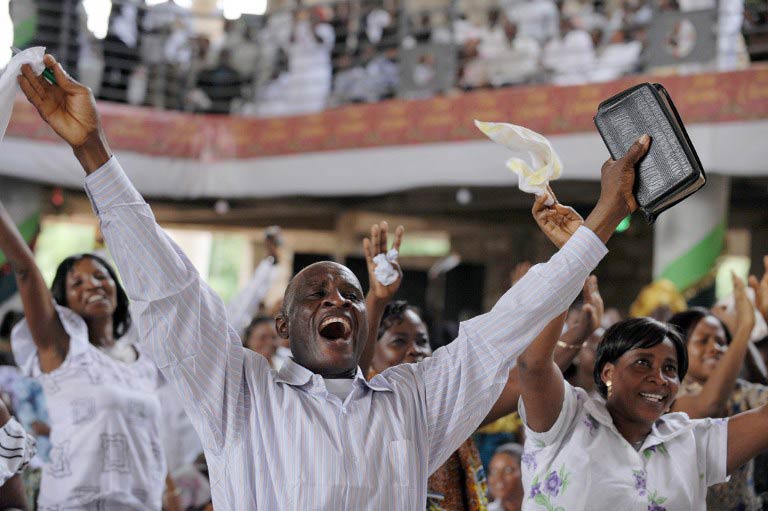They prefer to be known for preaching about peace and loving thy neighbour, but Ghana’s celebrity pastors are becoming embroiled by a rather ungodly row.
A well-known pastor has sparked outrage among his colleagues by making what Ghanaians are describing as an “earth-shattering” prophecy: that President John Dramani Mahama will die this year.
The reverend Isaac Owusu Bempah, founder of one of Ghana’s burgeoning new charismatic churches, the Glorious Word Ministry International, says that the message came to him directly from God.
Owusu Bempah, who first announced the prophecy on New Year’s Eve and has repeated it several times on local radio, has also cautioned that the president’s refusal to meet him might hamper attempts to avert the disaster.
“I have not been able to meet the president and inform him. A similar thing happened when I prophesied about the late President John Atta Mills [who died last year], but they turned me away,” he said.
But senior figures from other churches have hit back at the prediction, claiming it was unethical, and did not meet the criteria of a genuine prophecy.
“According to the new testament, if you give prophecy, it should edify, exalt or confirm,” said Bishop Dr Charles Agyin Asare, founder of the Word Miracle Church International and former vice president of the Ghana Pentecostal and Chariasmatic Council. “The scripture says we should judge prophecies to see whether they be of God, not that we should swallow them hook like and sinker. If I were to judge this prophecy, I would judge it incorrectly,” Agyin Asare added.
Dramatic prophecies are not uncommon in Ghana, where churches are big business and celebrity pastors compete to fill conference centres, theatres and arena for special weekend long services and prayer gatherings.
Agyin Asare, one of Owusu Bempah’s main critics, says he himself was called to ministry after hearing the audible voice of God in 1983 calling him to “heal the sick, raise the dead, preach the kingdom”.
But less than a year after Ghana’s last president John Atta Mills died suddenly in office, there has been limited appetite for predictions of doom in the presidency.

“We lost our president last year, and if [Owusu Bempah] was really concerned, the president is a Christian, he has a pastor, he could seek audience with him. But if you just dump your prophecy into the public domain, then you are just trying to scare people. That is not what a Christian minister is supposed to be doing,” Agyin Asare said.
Owusu Bempah was not available for comment, but it is not the first time the reverend, who is a regular fixture in the media in Ghana, has warned of impending disaster. A previous prophecy that Ghana could descend into civil war during December elections failed to materalise, after a new government was elected peacefully.
He is not without controversy. In 2011 he was accused of impregnating a member of his congregation whose mother brought her to the church to be exorcised of an evil spirit. Owusu Bempah denied those allegations, blaming a junior pastor in his employment who he said had fathered three children simultaneously with members of the church. He admitted taking the young female member of the congregation in to live with him in his home.
There is no official regulator of churches in Ghana, where two-thirds of the population is Christian and church attendance is high, although no figures exist. But some Christians are critical of the conduct of Ghana’s churches. “Most of these churches and their leaders are affiliated to a political party, they just make money out of the ignorance of the people,” said Charlotte Biney (49), a resident in Accra. “The churches hypnotise them and the people believe whatever they say. Even educated people fall for it – deep down in our culture most of the people believe in spiritualism and devilish spirits. It’s mind-boggling – sometimes you look at them and ask yourself what’s wrong with them.”
Such is the level of concern about the conduct of some churches that even pastors said that there should be closer monitoring of the activities of church leaders. “I think that there should be more ethics in ministry,” said Agyin-Asare. “Being a pastor doesn’t mean you are not accountable – you should be accountable to your church and you should be accountable to a group of ministers. As human beings we are not perfect – God calls imperfect people to do his work.”
Afua Hirsch for the Guardian Africa Network.
Comments are closed.